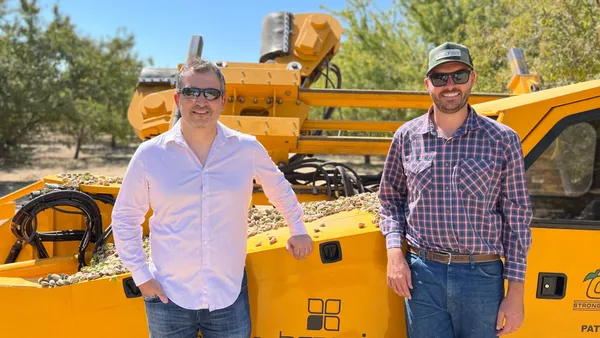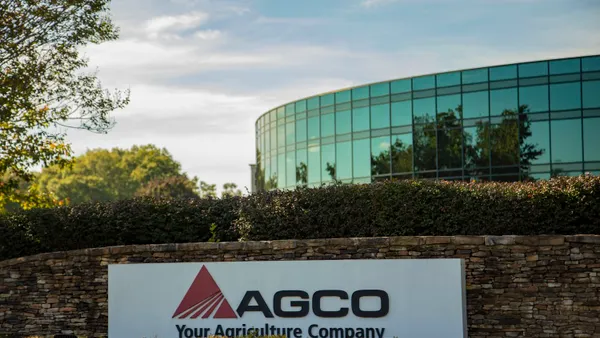Dive Brief:
- Mosaic is building a pipeline of new soil health products to expand its presence in the burgeoning agricultural biological market, the fertilizer giant said Tuesday.
- The company is developing the technologies under a platform called Mosaic Biosciences, an initiative to research and scale products aimed at driving improvements in plant health, stress management, nutrient uptake and crop yield.
- The announcement is a rebranding and expansion of Plant Response , a biologics company Mosaic acquired last year. Mosaic owns a number of biological fertilizer products meant to be used alongside traditional chemicals.
Dive Insight:
Higher nitrogen and potash prices last year sent fertilizer costs skyrocketing that pushed some farmers to consider alternatives. As pressures mount to shift to sustainable growing methods, the demand for agricultural biologics is expected to climb.
Mosaic is estimating the agricultural biologics market to hit $30 billion by 2029, according to its release. The company’s current portfolio includes biologics that improve nutrient efficacy or mitigate the impacts from drought, heat and salinity.
“Our portfolio of nutrient use enhancement technologies is just the start for Mosaic Biosciences,” Floris Bielders, vice president of strategy and new business platforms at Mosaic, said in a statement. “Biologicals are crucial in the evolution of crop nutrition and will elevate the potential in every field.”
Agricultural biologics use microorganisms to stimulate plant immune health. So far, major fertilizer companies see agricultural biologics as complements to traditional chemicals, not replacements.
Fertilizer alternatives largely remain in the research and development phase, and major manufacturers have invested to test their potential. Bayer last October announced a multi-year partnership with Ginkgo Bioworks to accelerate research of biologics.
Some manufacturers – including Mosaic – are hesitant to scale investment in biologics until they ensure they work.
“We've been working on trying to see what biologics might be,” CEO James O'Rourke said on a second quarter earnings call earlier this month . “I think that’s a little further off in the future. It is an exciting new area, again. But we really don’t want to stick our neck out too far until things are really proven.”











